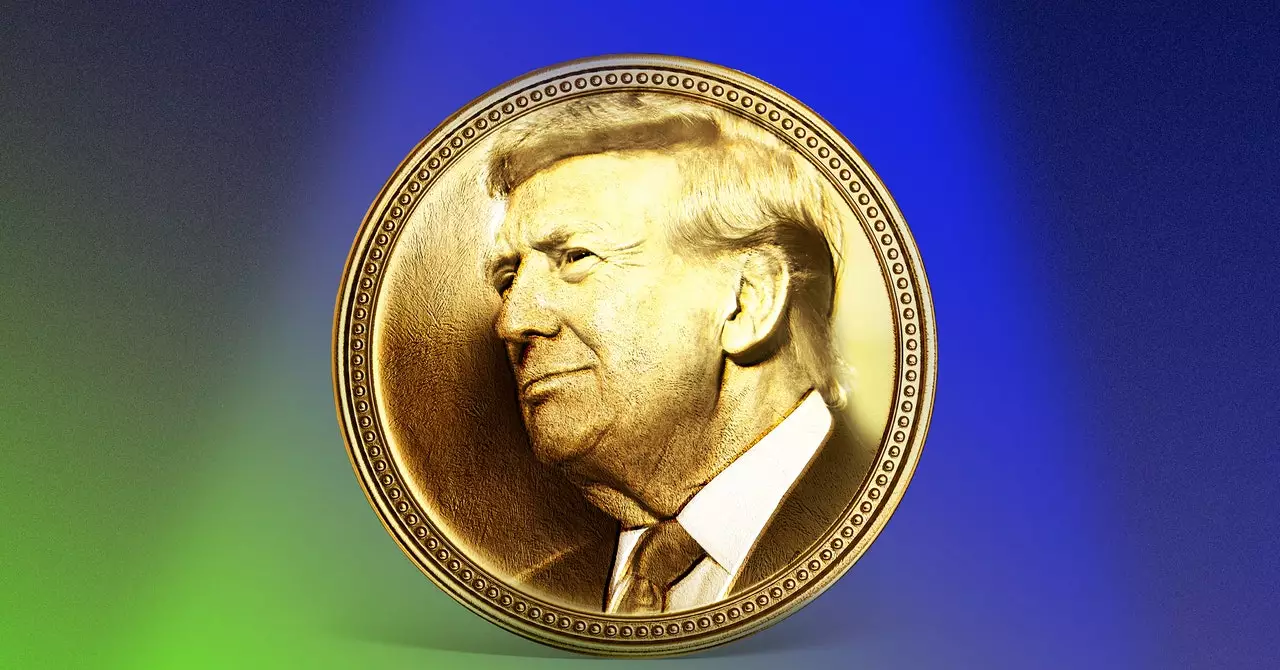In a dramatic twist, Donald Trump, once a critic of cryptocurrencies, has fully embraced the world of digital finance. The former president now seeks to position himself as the “crypto president” amidst a shifting political landscape. This article delves into Trump’s recent ardor for the crypto sector, the implications of his newfound affiliation, and the potential impact on both the cryptocurrency ecosystem and his political future.
Trump’s approach to cryptocurrencies was initially colorless, marked by his scathing remarks dubbing bitcoin a “scam.” However, this perspective has dramatically shifted as he began to actively engage with the cryptocurrency community. At a packed conference in Nashville, Trump declared his vision for the United States to become the “crypto capital of the planet.” He further announced his intention to create a national “bitcoin stockpile” should he secure a second term in office. This sudden pivot shows a remarkable shift in his political calculus, indicating an understanding of the growing influence of cryptocurrencies and the necessity to adopt new technologies to maintain political relevance.
Tyler Winklevoss, a notable figure in the crypto space, expressed his excitement on social media, characterizing Trump’s transformation as “orange-pilled,” a term borrowed from crypto enthusiasts to describe someone who has adopted the blockchain ideology. This endorsement from Winklevoss hints at a broader acceptance of Trump’s new role in the crypto domain, suggesting that even skeptics may find common ground with him.
The Trump Family and the Elusive Crypto Tokens
Intriguingly, speculation around the Trump family’s involvement with the emerging cryptocurrency sector has intensified. The discussions surrounding the World Liberty Financial project led to conjectures about a potential Trump-branded crypto token. The rise of several memecoins inspired by Trump has turned them into a barometer for his political trajectory—they often experience price fluctuations corresponding with his public status. Notably, the DJT token, reportedly tied to Trump’s brand, experienced a dramatic price surge before plummeting by 90% due to significant sell-offs by anonymous traders.
As interesting as these developments are, they also reveal the volatile nature of meme-based cryptocurrencies and the treacherous waters in which they operate. Martin Shkreli’s involvement, claiming a connection to Barron Trump in the creation of the DJT token, further muddies the narrative. Ultimately, the Trump campaign’s response to these claims has been conspicuously silent, raising questions about the family’s level of engagement with the crypto market.
World Liberty Financial is stepping into the fiercely competitive decentralized finance (DeFi) space, dominated by seasoned players like Aave and Compound. The company faces a formidable challenge in gaining traction in an already crowded market. Experts in the field, such as Zach Hamilton, emphasize that while DeFi is experiencing maturation, the Trump brand offers an unusual advantage: an extensive built-in audience.
Indeed, even amidst competition, the chaos of the crypto landscape exudes a certain allure. Trump, often a polarizing figure, has the potential to harness his notoriety to attract attention and interest to World Liberty Financial. As Hamilton observes, the attention from Trump could provide the platform with unparalleled marketing opportunities, capitalizing on his immense influence.
Despite the excitement surrounding World Liberty Financial, there is cautious optimism among established players in the DeFi industry. Concerns linger regarding the potential reputational damage a failure in this venture could incur, given Trump’s track record. Industry veteran Brad Harrison articulates the importance of having skilled individuals behind a new DeFi platform to navigate its complex dynamics and potential pitfalls effectively. There remains a prevailing sentiment that, without this expertise, World Liberty Financial may risk devolving into a branding exercise rather than a game-changer in the financial landscape.
Regardless, supporters might flock to the new venture as an expression of solidarity with Trump’s political ambitions. Commentators like Jacob Silverman note an emerging alliance between certain factions of the crypto industry and right-wing politics, suggesting that cryptocurrencies are increasingly becoming associated with Republican ideologies.
A Political Hedge or Future Opportunity?
Trump’s engagement with crypto may also harbor ulterior motives. The potential to establish World Liberty Financial could function as a strategic hedge against electoral loss, providing Trump with a lucrative fallback option. The enthusiastic reception he received at the Nashville conference may have reinforced his idea that he could tap into this growing sector as a means for both political clout and personal profit.
Trump’s voyage into the cryptocurrency arena poses both thrilling opportunities and significant challenges. As he navigates this new landscape, the symbiosis between political maneuvers and technological advancements will play a crucial role in determining not only his political legacy but the overall trajectory of the cryptocurrency industry in the United States.

